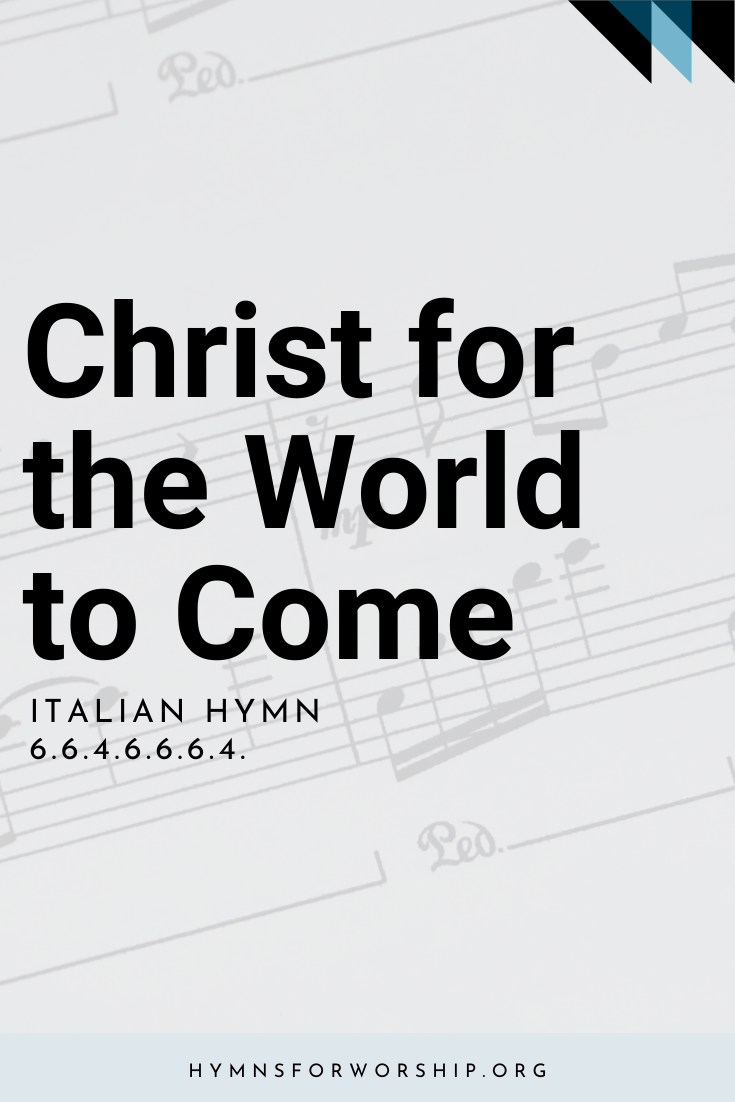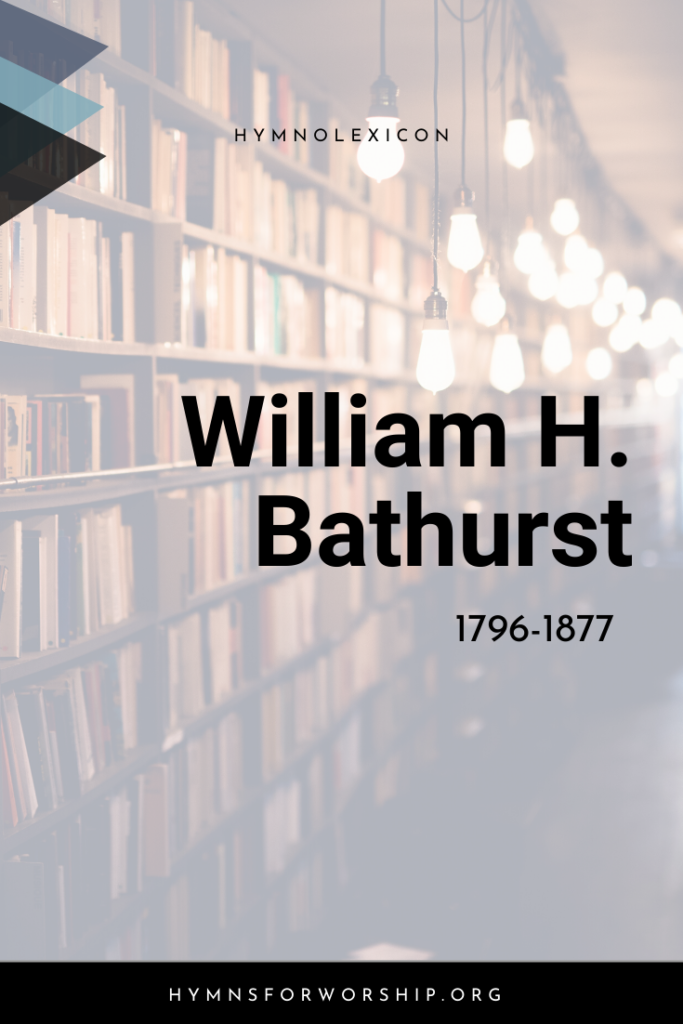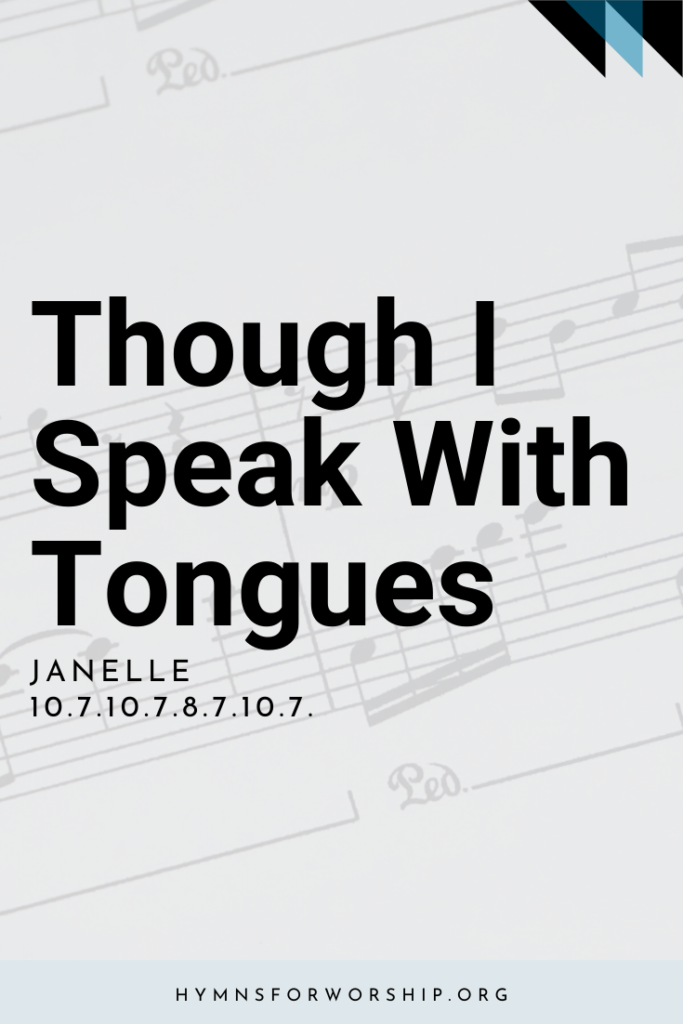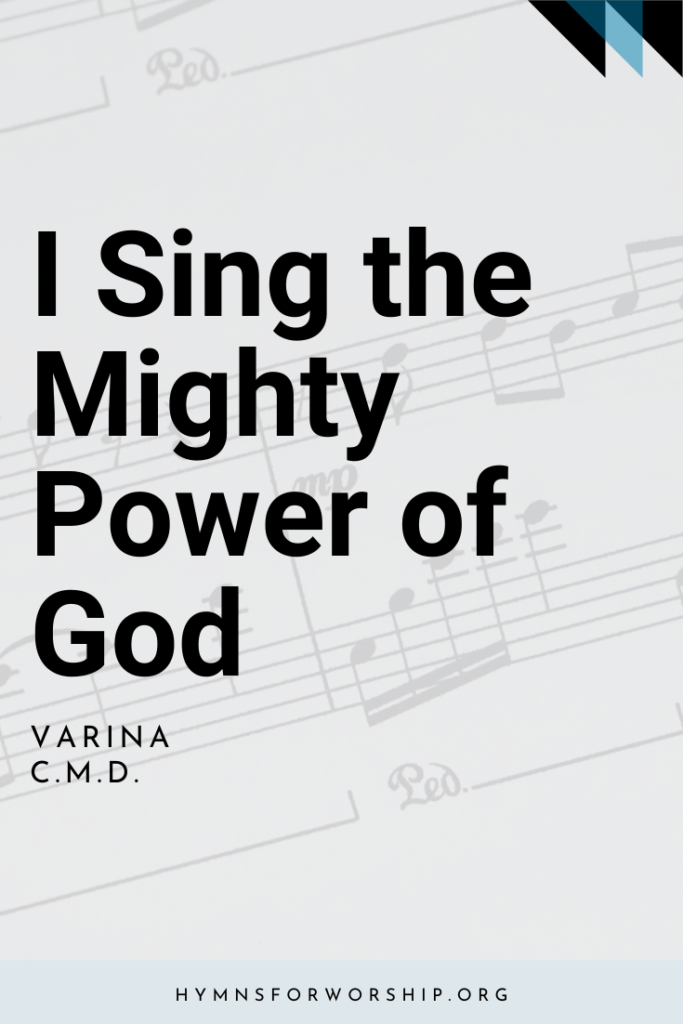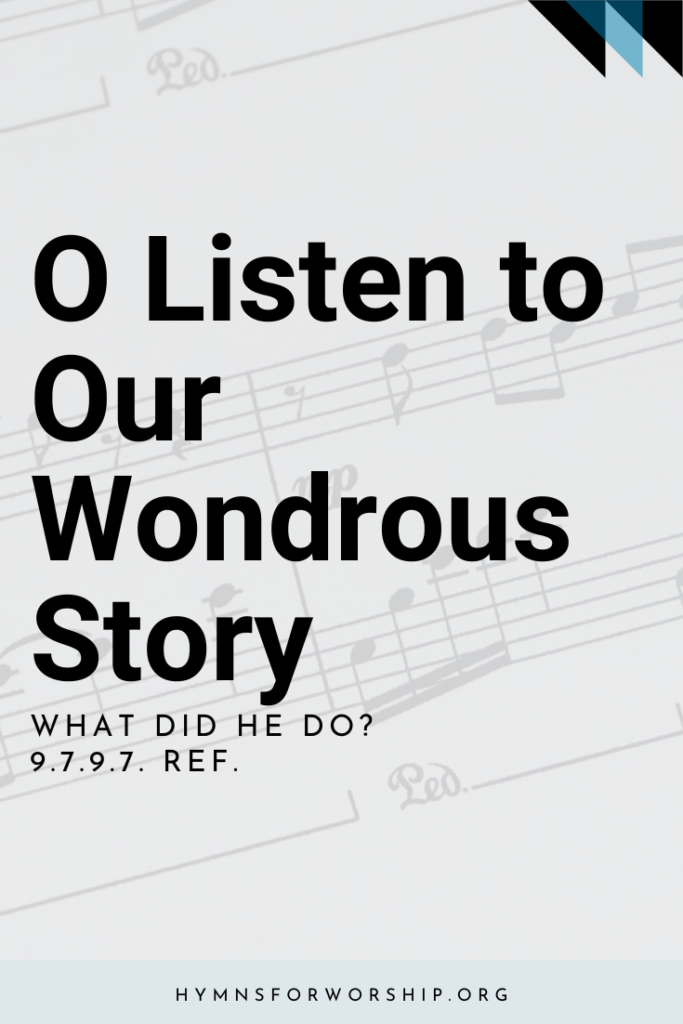CHRISTIAN CHURCH >> Mission of the church
SDAH 370
Christ for the world we sing,
the world to Christ we bring,
with loving zeal;
the poor, and them that mourn,
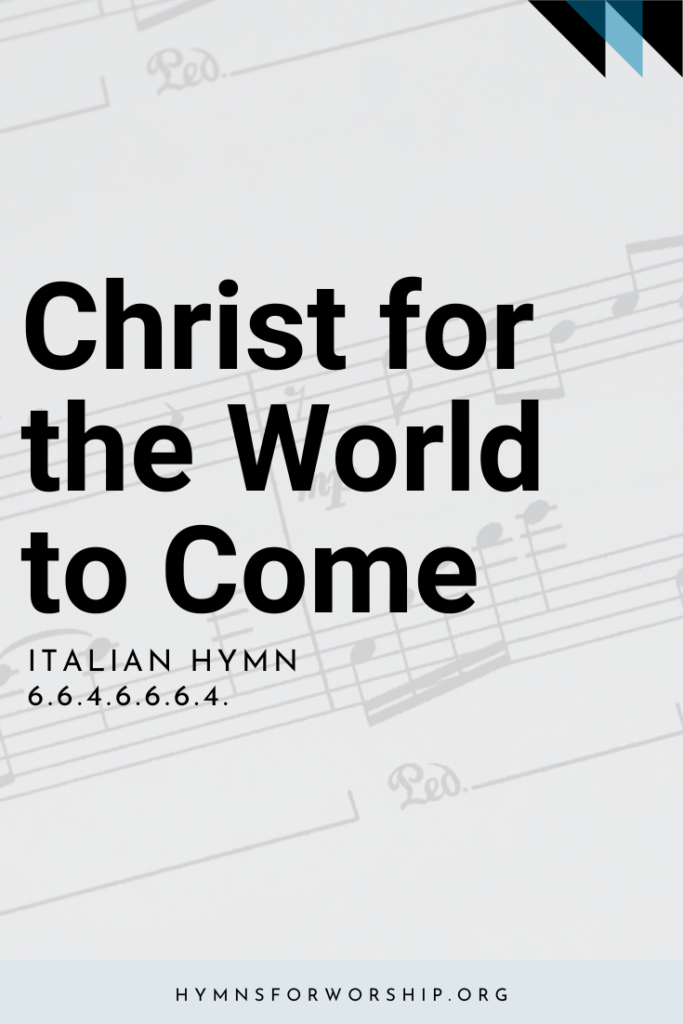

Text
1
Christ for the world we sing,
the world to Christ we bring,
with loving zeal;
the poor, and them that mourn,
the faint and overborne,
sin-sick and sorrow-worn,
whom Christ doth heal.
2
Christ for the world we sing,
the world to Christ we bring,
with fervent prayer;
the wayward and the lost,
by restless passions tossed,
redeemed at countless cost,
from dark despair.
3
Christ for the world we sing,
the world to Christ we bring,
with joyful song;
the newborn souls, whose days,
reclaimed from error’s ways,
inspired with hope and praise,
to Christ belong.

Hymn Info
Biblical Reference
(a) 1 Tim 1:15; Ps 103:3 (b) Luke 19:10 (c) 1 Pet 1:23
Author
Samuel Wolcott (1813-1886)
Year Published
1869
Hymn Tune
ITALIAN HYMN
Metrical Number
6.6.4.6.6.6.4.
Composer
Felice de Giardini (1716-1796)
Year Composed
1769
Alternate Harmony
SDAH 71
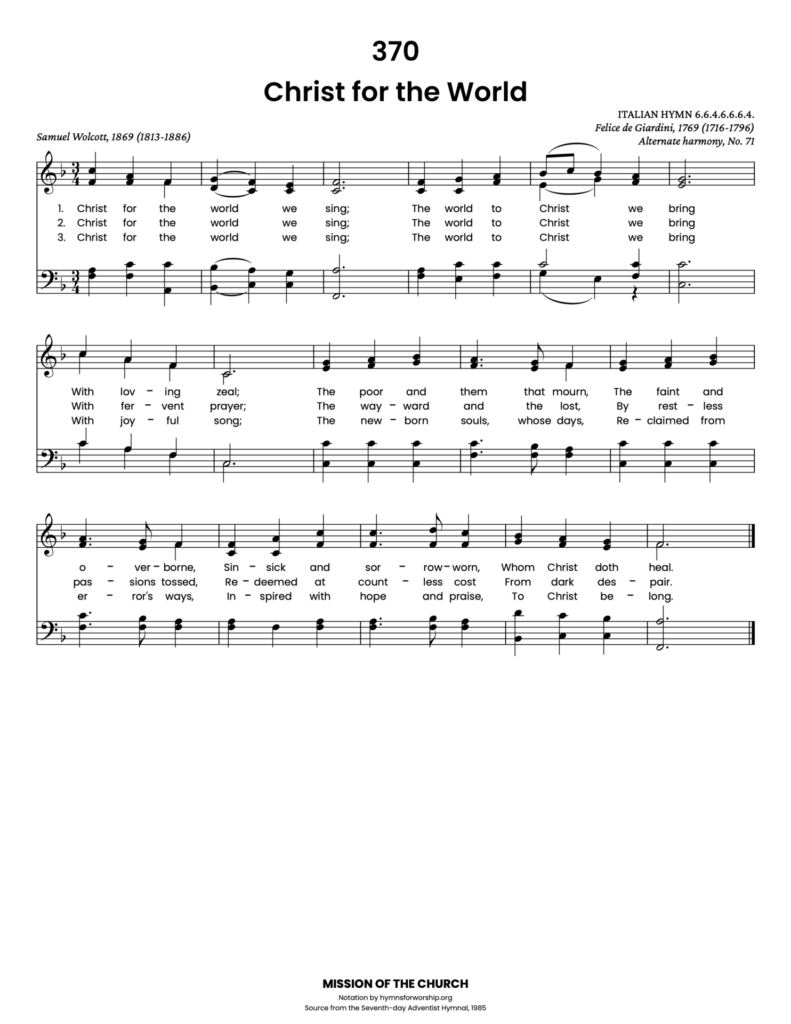
Get the hymn sheet in other keys here
Notes
Make each hymn more meaningful with these helpful tools: Short, ready-to-use hymn introductions for church bulletins, multiple ways to introduce a hymn based on your worship theme and in-depth history and insights to enrich your song service.

